12.03.2021
Read Issue 1: All About the Climate Law here.
Read Issue 2: Responding to a Crisis: Climate and Corona here.
Read Issue 3: Will COVID-19 Destroy or Empower the European Green Deal here
Read Issue 4: Financing the Green Deal here
Read Issue 5: The EU Recovery Plan here
Read Issue 6: The Mercosur Trade Agreement: A Lose-Lose Deal here
Read Issue 7: Farm to Fork Strategy here
Read Issue 8: The European Climate Targets by 2030 here
Read Issue 9: How Trees Can Stop Climate Change here
Read Issue 10: Getting out of the red: The Greenhouse Gas Budget here
Back in October 2020, the European Parliament voted on the European Climate Law. Amazingly, the Greens/EFA Group were able to push the Parliament’s target reduction in greenhouse gases from only 40% to 60% by 2030! This led to a compromise of a 55% target during the negotiations with the European Council.
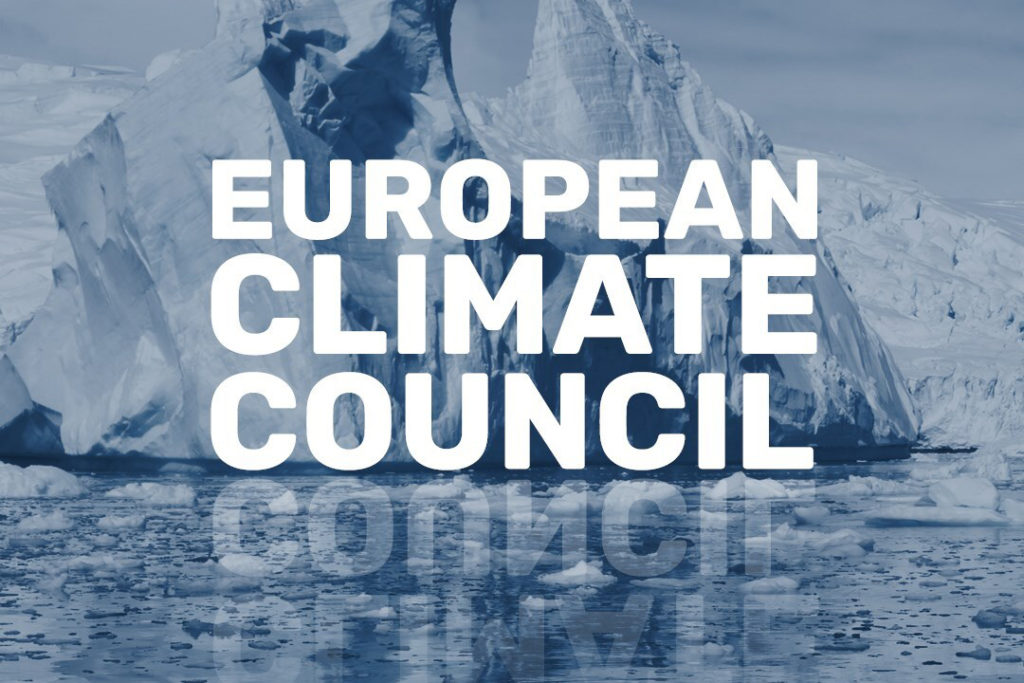
Even though this was a huge victory for climate change campaigners and we successfully pushed the EU’s target way up, we know that it’s still insufficient if we compare that target to the 1.5°C global warming carbon budget laid out by the Intergovernmental Panel on Climate Change (IPCC).
This is a big problem: politicians are making decisions without listening to science.
Wouldn’t it be great to have a body in the EU to assess and evaluate climate change policies, and to check that they are in line with the science and the targets laid out in the Paris Agreement? Well, here is some good news! While everyone was voting on the percentage of the climate target by 2030, the European Parliament passed a proposal to establish a European Climate Change Council (ECCC).
The European Climate Change Council is now being discussed as part of the negotiations following the Climate Law vote. It’s crucial that the EU Council and EU Commission see this as a necessary step towards ambitious climate action.
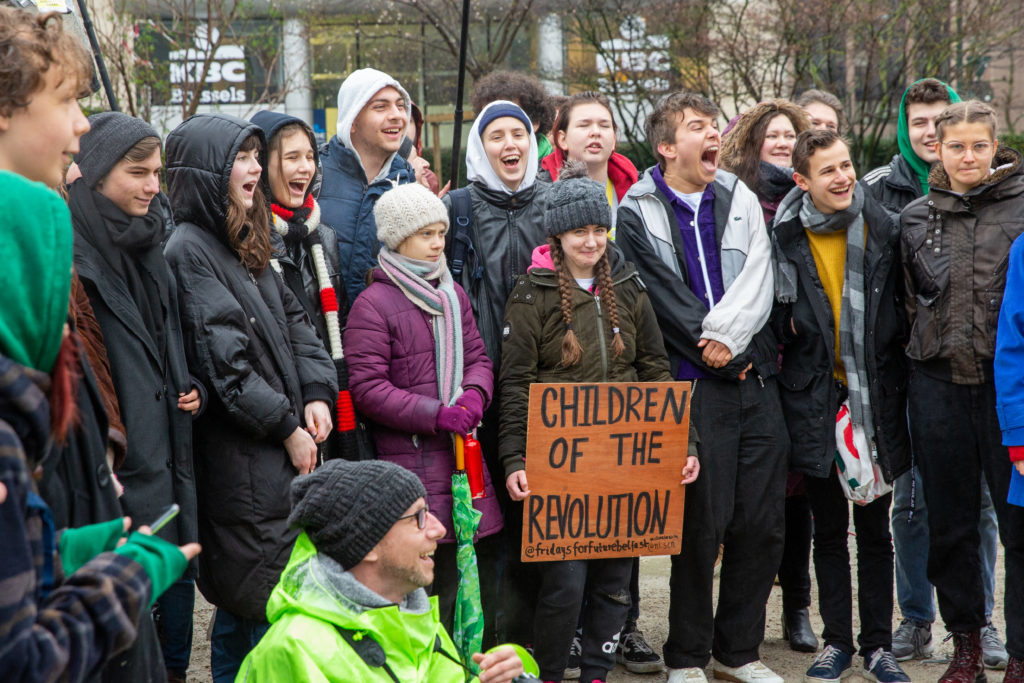
What is the ECCC and why is it important?
The most important task of the ECCC would be to assess whether the EU’s laws are consistent with their set targets. This is important for transparency but also because it makes no sense to set climate targets if we don’t check whether we are reaching them. It would also be the first scientific body in the EU to check the likelihood of remaining within our greenhouse gas budget, which sets out the red line after which climate breakdown is inevitable and irreversible. As you can imagine, it’s important we don’t cross it.
Another job of the ECCC would be to determine the possible and future damage to the climate in the event of inadequate measures or the failure to follow up on the set targets and promises. This is very important because it provides the necessary sense of urgency for the EU to act ambitiously.
The ECCC will also take into account human rights, which are at the core of the climate crisis and too often ignored. By 2050, the number of climate refugees is expected to rise by half a billion. Food and water supplies in many countries will reduce by half, and heatwaves, floods and forest fires will make entire regions uninhabitable. The lungs of our planet – the Amazon rainforest and the oceans – are being burned down and acidified, displacing indigenous communities and wrecking livelihoods dependent on those resources. Over all, climate-related violations of human rights is an argument that is far too little addressed.

And finally, the ECCC would be appointed to identify possible measures and actions that the EU could do to reduce greenhouse gas emissions, enhance biodiversity and take all the necessary measures to tackle the climate crisis.
It’s actually unbelievable that so many policies are being written without scientific assessment or advice. If politics and science don’t collaborate in the climate crisis, we will never reach the necessary targets. We can only mobilise society to act and change a system if we use science to explain its importance. The climate crisis has become a political game without a referee. By inviting independent scientists, the rules of that game will change. Politicians will no longer have a carte blanche to decide climate policy. There will be people at the negotiating table holding them accountable for those decisions.
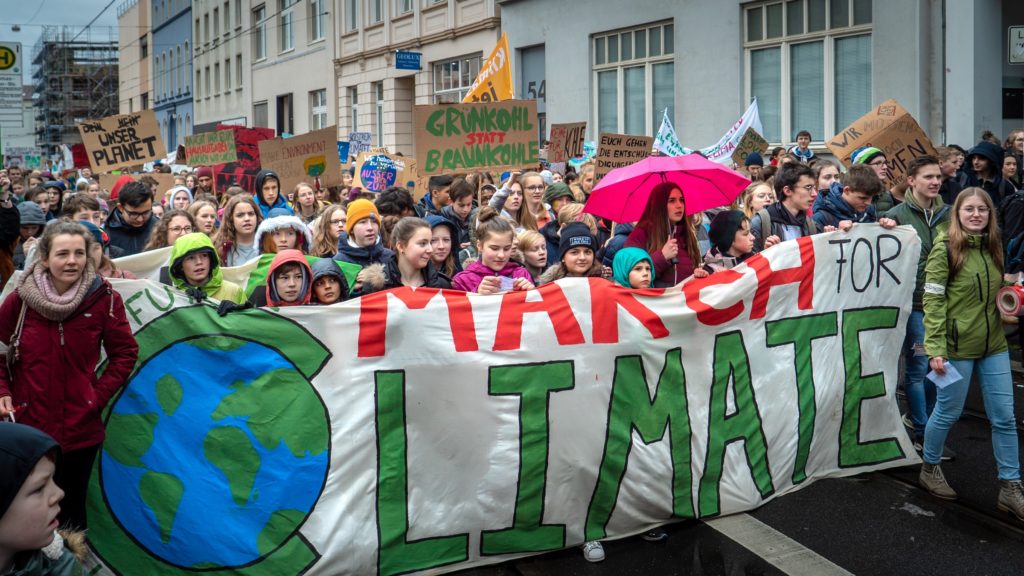
Some countries already have their own Climate Change Council. Why do we need a European one?
The European Climate Change Council is not an unprecedented idea in Europe. In recent years, different countries have passed a Climate Law establishing a scientific body in charge of collecting data and assessing climate policies, like the ECCC. These have been settled by national laws and each has different characteristics. Generally, the more they are independent from the government that established them, the more they are able to speak freely.
The PBL Netherlands Environmental Assessment Agency regularly depicts alarming scenarios saying that the Dutch government is failing to reach its own emissions reduction target, let alone its Paris Agreement one. In 2008, the UK’s Committee on Climate Change advised the government that 4°C was the threshold of “extreme danger”; and then last year, given the government’s perpetual failings, it recommended preparing for a 4°C world as a priority action for all departments. These reports have been used in successful climate litigation cases to show the government’s deliberate negligence when it comes to climate change. They proved that the government was informed about their policies’ insufficiency and the devastating effects of the climate crisis, but did not act accordingly.
The ECCC is therefore an important and necessary step to monitor and report on the climate emergency at EU level, amplifying the voice of science and helping climate litigation campaigns.
Of course, we’re missing more than just updated scientific reporting. We are lacking the media that properly covers them and the political will to listen and respond accordingly. For decades the scientific community has sounded the alarm. Each year, the UN publishes a report showing the gap between where global emissions are and where they should be to avoid the worst impacts of climate change. Recently, the UN made it clear that the national plans (NDCs) presented so far put us on a path to achieve only a 1% reduction of global greenhouse gases by 2030 – heart-breaking news that attracted barely any media attention.
Most media and governments are failing in their fundamental duty. We cannot simply stand aside and wait for them to take the right steps to ensure a safe and livable climate. We need a massive public mobilisation, which will only take place if we can show that we are still in a phase of denying or greenwashing. An independent European Climate Change Council would be our ally in this. But, as always in history, it’s not going to be handed to us without a fight.

What are the next steps for the ECCC?
The ECCC is a proposal by the European Parliament. That means it has great democratic backing, but there is a certain danger behind it. Since the ECCC proposal is not supported directly by the European Commission, this makes it easier for the European Council to sweep it off the table during the Climate Law negotiations. The conclusion will be a compromise between the Council and the Parliament, so we need to make sure there is enough pressure in individual EU countries to support the ECCC because each and every EU Member State has a vote on this amendment.
In Germany, Denmark, Sweden, Finland and Luxembourg, there’s a clear sign of support for the ECCC. Unfortunately, when it comes to some Eastern European countries, there is more of a block. The big question marks will be Italy and Spain, as they should normally be more progressive towards these kinds of regulations.
In a recent report by the General Secretariat of the Council of Europe (CoE), the position of the CoE was that they understand the advantage of an independent council of scientists to assist the European Environment Agency (EEA) in their work on climate change. They also added that every Member State is invited to establish a national ‘climate advisory body’ to help individual countries to accomplish their own national climate targets.
The European Environment and Sustainable Development Advisory Councils Network (EEAC Network) also sent a letter to the European institutions to make clear their support of an European Climate Change Council, which would “create consistency between policies and long-term goals such as reaching climate neutrality”. The political pressure for an ECCC is starting to mount, and it’s more important than ever that we keep that pressure up.
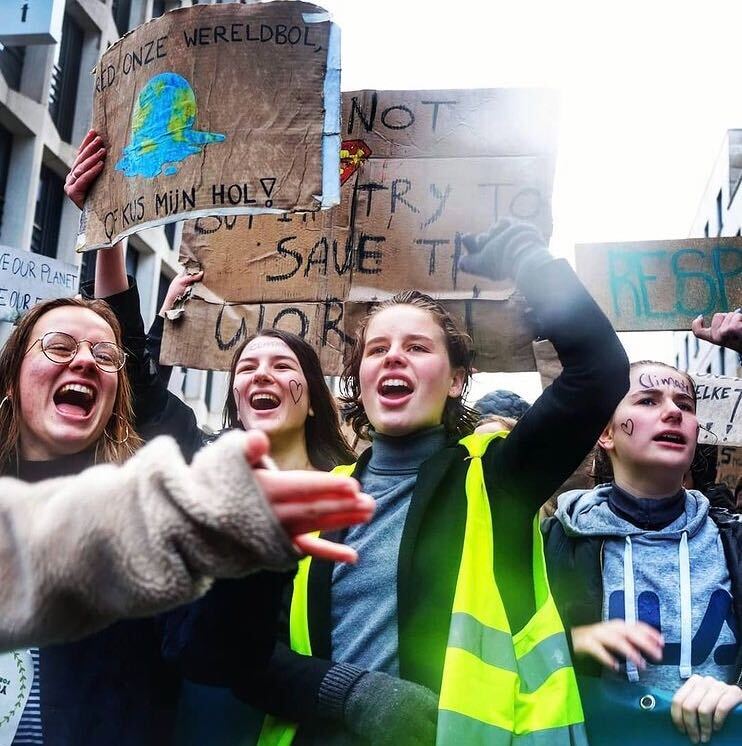
Anuna De Wever 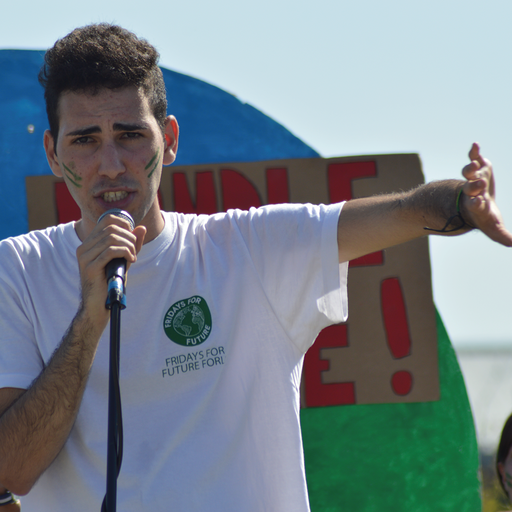
Marco Pitò
We are Anuna De Wever and Marco Pitò, two climate activists active in the Fridays For Future movements in Italy, Belgium and on an international level.
We have campaigned on various EU policies together like the Common Agriculture Policy, The Climate law and the Mercosur-trade agreement. The green deal was the Eu’s green promise to be carbon neutral by 2050. In these blogs we lay out all the different aspects of the green deal and build the bridge between the climate activists in the streets and the politicians in the European Parliament. We would like to offer young activists more information about the internal trade-offs to pressure the right points, and debate with our politicians to show them there are millions of people all around the world ready and waiting for change.